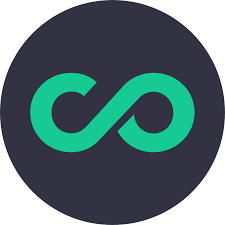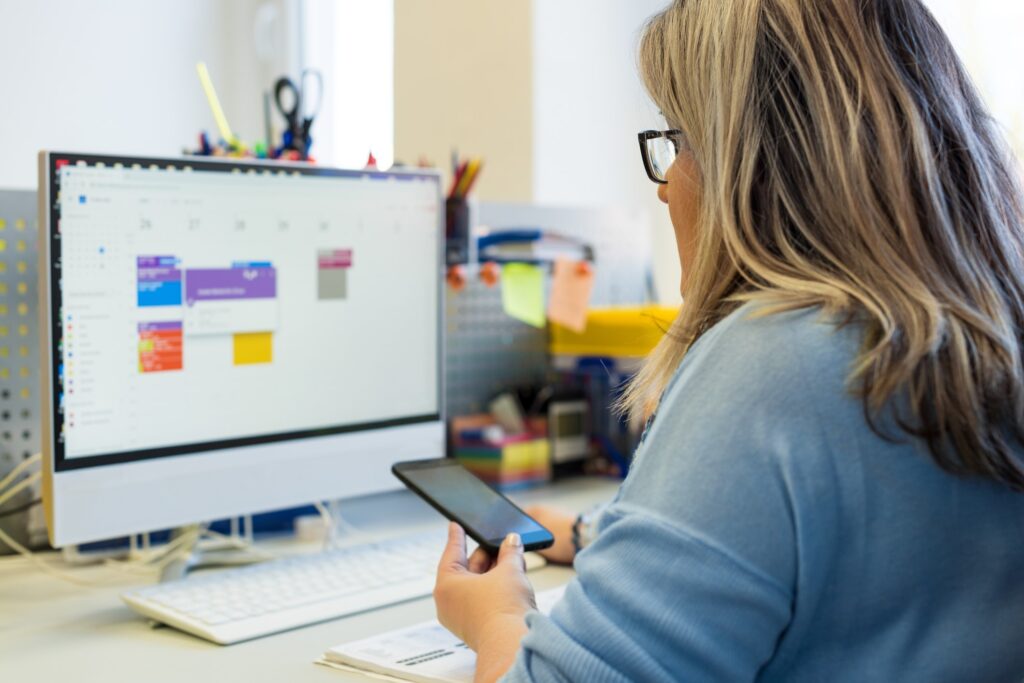In the healthcare industry, patient engagement refers to individuals actively participating in their own health and well-being. It encompasses a patient’s willingness and ability to participate in decision-making, adhere to treatment plans, and effectively interact with healthcare services. This engagement improves patient outcomes and overall healthcare quality while fostering a sense of partnership between patients and healthcare professionals.
Clear communication between patients and healthcare providers is crucial for effective consumer activation. Effective interaction within the healthcare sector is essential for ensuring that patients are empowered to make well-informed decisions about their health while receiving the appropriate care. It is critical in building trust, addressing concerns, and delivering patient-centered care. Mobile apps in healthcare offer new avenues for patients to manage their well-being.
The mobile app development journey has evolved in compelling and exciting ways over the past few years. The evolving healthcare landscape now incorporates technology and mobile applications as integral components of the patient-provider relationship. Understanding the benefits, challenges, and future trends is crucial to enhancing patient engagement in the healthcare industry.
The Landscape of Healthcare Mobile Apps
The usage of healthcare apps has seen remarkable growth in recent years. In a Morning Consult survey, 40% of US adults said they use health applications, and another 35% use wearables, both up from late 2018 surveys. This growth trend is driven by the convenience and accessibility of apps, making them an attractive choice for the healthcare industry. The increasing use of medical apps and wearables shows the growing reliance on digital tools.
Types of Healthcare Mobile Apps
Healthcare professionals can categorize mobile apps according to their various functionalities, including:
- Wellness and fitness apps
- Mental health apps
- Telemedicine applications
- Medication management tools
- Charge capture tools
This variety ensures that these health apps serve a wide range of needs in the healthcare sector. The versatility of mobile apps improves patient engagement and healthcare outcomes. Some examples include:
- smartphone apps for scheduling doctor appointments
- medication reminders
- symptom tracking
- telehealth consultations
- chronic disease management
Enhancing Patient-Provider Communication
Mobile technology enhances various aspects of communication, including:
- Appointment Scheduling and Reminders: Healthcare mobile apps offer patients the convenience of scheduling appointments with their medical organizations on their phone. These health apps also provide timely reminders to help patients stay organized. They also reduce the likelihood of missing crucial healthcare appointments, improving patient engagement and care coordination.
- Secure Messaging and Telehealth: Many healthcare apps provide secure messaging platforms that enable patients to communicate with their healthcare professionals, seeking advice or discussing health concerns privately and conveniently. Telehealth services integrated into mobile applications allow virtual consultations, making the healthcare industry accessible, especially in remote or underserved areas.
- Health Records Access and Sharing: Healthcare mobile apps allow patients immediate access to their electronic health records, fostering transparency and patient involvement in their healthcare journey. These records can be securely shared with healthcare providers, ensuring that all relevant personal health information is readily available during consultations, leading to more informed decision-making.
- Remote Patient Monitoring: Some healthcare apps enable remote patient monitoring. This is especially valuable for individuals with chronic diseases. Patients can transmit vital signs and health data to their healthcare providers, who can monitor and intervene. This feature improves the management of lingering conditions and reduces the need for frequent in-person visits.
Benefits vs. Challenges and Concerns of Mobile Apps in Healthcare
Mobile healthcare apps are revolutionizing access to medical services, allowing users to book appointments, retrieve health information, and speak with doctors virtually. While these apps empower individuals to take an active role in their well-being, there are concerns regarding patient data security. There is also the need to address disparities in access to technology highlight the importance of a comprehensive approach for universal benefits.
| Benefits | Challenges and Concerns |
| One significant benefit of mobile applications is improved access to care. Patients can conveniently schedule appointments, access medical information, and even engage in telehealth consultations, eliminating geographical barriers and making healthcare more accessible. | The foremost concerns are data privacy and security. Mobile health apps must provide the utmost security to safeguard patient data from breaches and unauthorized access while exchanging sensitive medical information. Maintaining robust data protection measures is crucial. |
| Healthcare apps also increase patient engagement and empower individuals to actively participate in their healthcare journey by providing tools for monitoring health and medication adherence and facilitating secure communication with healthcare providers. This active involvement leads to more informed decision-making and better treatment monitoring. | Health disparities represent another challenge. While healthcare apps can potentially improve patient engagement and access, disparities in access to technology and internet connectivity may exclude specific populations. Bridging this digital divide and ensuring that mobile app services are equally accessible to all individuals is a pressing concern. |
| Personalized healthcare is another noteworthy benefit. Mobile apps can collect and analyze user data to tailor health advice, treatment recommendations, and wellness programs to individual needs and preferences. This personalization optimizes outcomes by addressing each patient’s unique requirements. | User adoption and digital literacy are additional hurdles. Not all patients or medical professionals are equally tech-savvy, and these apps can be complex. Ensuring app users can effectively navigate and utilize these tools is vital for their success. |
| Apps also contribute to cost reduction and efficiency in the healthcare industry. By streamlining administrative business processes, reducing the need for physical paperwork, and promoting early intervention through remote patient monitoring, these apps help healthcare providers and institutions operate more efficiently, resulting in cost savings. | Regulatory and legal issues are a constant concern. Healthcare apps must adhere to strict standards to protect patient safety and data. Navigating the complex legal landscape, including compliance with healthcare regulations, poses an ongoing challenge for app developers and healthcare providers. |
Future Trends and Innovations
Exciting healthcare app developments are on the horizon for mobile applications. Two critical areas of innovation include the integration of AI (artificial intelligence) and machine learning into healthcare apps and increasing integration with wearable medical devices.
AI and machine learning in healthcare apps are revolutionizing how medical data is analyzed and how it helps healthcare professionals make treatment recommendations. These technologies can use vast datasets to identify patterns, predict disease outcomes, and offer personalized health advice. They have the potential to boost diagnostics, streamline patient care, and improve overall healthcare efficiency.
The addition of health monitoring apps with wearable devices represents another promising trend. Smartwatches and fitness trackers can monitor vital signs, track activity, and collect health data. When combined with apps, this data collection can provide a real-time, complete view of a patient’s health, allowing for timely and precise interventions. This integration promotes proactive healthcare, especially for those who must manage chronic conditions.
Recommendations for Healthcare Providers
Healthcare providers have a crucial role in harnessing the potential of healthcare mobile apps to improve patient care. They can collaborate with healthcare app developers to guide their patients on how to benefit from these apps, ensuring that they align with best practices and help find reliable and secure healthcare apps.
How Patients Can Benefit from Healthcare Mobile Apps
Healthcare providers can guide their patients on gaining the most benefit from mobile apps. Primarily, providers should educate patients about the apps available to them and their specific functionalities. Encouraging patients to use apps for appointment scheduling, medication reminders, symptom tracking, and accessing health records can improve patient engagement and care coordination.
Providers should also emphasize the importance of data accuracy and consistency. Patients should be encouraged to input accurate and up-to-date information into these apps to ensure that healthcare providers have immediate access to reliable data during consultations. Compliance can lead to more informed decision-making and personalized care plans.
Best Practices for Healthcare Providers
To maximize the effectiveness of healthcare mobile apps, providers should adhere to best practices, including ensuring that their digital platforms are compatible with popular healthcare apps for a seamless data exchange. Providers should also stay updated on app developments and recommend trusted apps to patients.
Maintaining patient privacy is paramount. Healthcare industry authorities must educate patients on securing their health data and using secure, HIPAA-compliant apps. Providers should also establish clear communication channels for patients to report any issues or concerns related to the mobile healthcare apps they use.
Finding Reliable and Secure Healthcare Apps
Medical professionals should take an active role in helping patients find reliable and secure mobile healthcare apps. They can curate a list of approved healthcare apps that align with their practice and specialties, offering patients a selection of trusted options. Providers should also stay informed about industry standards and certifications for healthcare apps, which can guide their recommendations.
The Growing Potential of Apps in Healthcare
Mobile apps are playing an increasingly significant role in the healthcare industry, offering a range of benefits. These digital technology tools have the potential to revolutionize the way healthcare is delivered and experienced, making medical services more accessible, efficient, and patient-centered.
One of the key aspects of this transformation is the continuous evolution of patient-provider communication. Healthcare mobile apps are reshaping how patients and providers interact, facilitating secure messaging, telehealth discussions, and sharing health records. This ongoing evolution ensures patients are more informed, engaged, and connected with their health teams, leading to better care outcomes.
With AI and machine learning integration, healthcare apps can provide personalized health insights and predictive analytics. When seamlessly integrated with apps, wearable devices offer real-time health data for proactive well-being management. As healthcare providers and patients continue to embrace these innovations, the vision for the future is improved health results, increased patient satisfaction, and more efficient healthcare delivery.
Capture Charges with a Single Mobile App
Charge Capture offers a unified application for managing patient notes, billing codes, and rounding lists. And does it all directly from the point of care.
With our mobile app, healthcare providers can efficiently and accurately record charges immediately after attending to a patient. Charge capture eliminates the need for handwritten notes turned in days later or potentially lost forever.
It equips physicians with the necessary tools to enhance billing cycles, minimize revenue loss, and work more efficiently. It serves as your central billing hub, effortlessly importing data from any source.
Charge Capture offers a convenient, comprehensive reporting dashboard that seamlessly syncs with your practice management or billing system.
Additionally, this platform enables seamless sharing of patients between physicians for handoff or weekend rounding. Charge capture ensures crucial information like shared notes, procedures, and relevant patient details are readily accessible.
With Charge Capture, you can easily manage facesheets, notes, and charges using a user-friendly interface, streamlining administrative tasks for providers.





